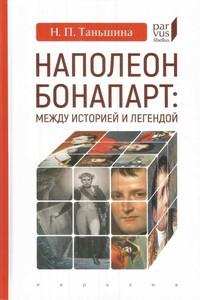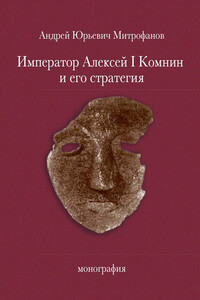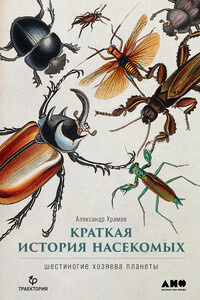Английский язык для специальных и академических целей: Международные отношения и зарубежное регионоведение. Часть 1 - [10]
2. Electronic Data Systems ran the Inland Revenue's tax and National Insurance system from 1994 to 2004. In 2003, the launch of a new tax credit system led to over-payments of £2 billion to over two million people. EDS later paid £71.25 million in compensation for the disaster.
1. ... the United States with its pioneering democratic constitution ...
2. The Westminster Model has very much going for it.
3. ... to be in command of a modicum of physical and human capital to be able to live as the master of his or her life .
4. With the NHS the government cut through the rot .
5. . the jury is still out on this .
6. . with the help of carefully engineered means-tested benefits.
7. . this strategy . is never target efficient .
8. . its potential is not realised in delivery.
9. . there appears to be little or no demand or appetite in the population for this crucial building block in the democratic architecture to be restored.
10. The narcotic of free money has numbed political sensitivities.
1. What is a solid democracy according to the article?
2. What makes Britain's democracy deficient?
3. What spheres of British life does the author look at to substantiate his position?
4. How does the population of Great Britain react to the democratic deficit?
5. What political reforms are called for, in the author's opinion?
1. What, in your view, are the criteria of the effectiveness of democracy?
2. Do you share the author's opinion that the British democracy is deficient?
3. How feasible do you think the suggested reforms are?
a) to compare one of the solid democracies mentioned in the text with the British democracy. Focus on the healthcare system, education, and welfare system OR
b) to comment on the other aspects of Britain's democracy.
VOCABULARY PRACTICE 1
1. of only average quality; not very good
2. a belief in human equality especially with respect to social, political, and economic affairs
3. to have a specified place within a grading system
4. to implant (an idea or feeling) so that it becomes ingrained within a particular context
5. to transfer or delegate (power) to a lower level, especially from central government to local or regional administration
6. minor and not important; not central
7. to express (an idea or feeling) fluently and coherently
8. clearly visible; attracting notice or attention
9. firm determination to do something
10. an emotion involving pleasure, excitement and sometimes anxiety in considering some expected or longed-for good event
11. the state of having a great deal of money; wealth
12. tending to remind one of something; suggesting something by resemblance
13. a feeling of disappointment about someone or something you previously respected or admired; disillusionment
14. evoking interest, attention, or admiration in a powerfully irresistible way; not able to be refuted; not able to be resisted
15. fill; pervade; instill (a quality) in someone or something
1. solid, __________ , __________ , ___________ democracy
2. marginal: differences, __________ ,__________ , ___________
3. conspicuous: _________ , __________ , _________ , __________
4. to mobilize, ________ , __________ , __________ , _________ one's resolve
5. affluent: society, __________ , __________ , __________ , __________
6. compelling: reasons, __________ , __________ , __________ , __________
1. In “Beyond Good and Evil”, Nietzsche __________ his disdain for conventional morality where
he described Christian standards as a “slave morality”.
Unit I. UK: from Empire to Democracy
Unit I. UK: from Empire to Democracy
2. __________ is the position that equality is central to justice. It is a prominent trend in social
and political philosophy.
3. To make a _________ argument requires tact, knowledge and the ability to see both sides of
the debate.
4. We have a duty to ________ voters with confidence that their votes will be counted, that their
voices will be heard.
5. He increased their courage and strength in every hardship, lightened their burdens and strengthened their _________.
6. For inward investment flows, Britain ________ third behind the US and Germany.
7. Many anthropologists agree that fundamentally the economy is _________ in culture and

Наполеон притягивает и отталкивает, завораживает и вызывает неприятие, но никого не оставляет равнодушным. В 2019 году исполнилось 250 лет со дня рождения Наполеона Бонапарта, и его имя, уже при жизни превратившееся в легенду, стало не просто мифом, но национальным, точнее, интернациональным брендом, фирменным знаком. В свое время знаменитый писатель и поэт Виктор Гюго, отец которого был наполеоновским генералом, писал, что французы продолжают то показывать, то прятать Наполеона, не в силах прийти к окончательному мнению, и эти слова не потеряли своей актуальности и сегодня.

Монография доктора исторических наук Андрея Юрьевича Митрофанова рассматривает военно-политическую обстановку, сложившуюся вокруг византийской империи накануне захвата власти Алексеем Комнином в 1081 году, и исследует основные военные кампании этого императора, тактику и вооружение его армии. выводы относительно характера военно-политической стратегии Алексея Комнина автор делает, опираясь на известный памятник византийской исторической литературы – «Алексиаду» Анны Комниной, а также «Анналы» Иоанна Зонары, «Стратегикон» Катакалона Кекавмена, латинские и сельджукские исторические сочинения. В работе приводятся новые доказательства монгольского происхождения династии великих Сельджукидов и новые аргументы в пользу радикального изменения тактики варяжской гвардии в эпоху Алексея Комнина, рассматриваются процессы вестернизации византийской армии накануне Первого Крестового похода.

Виктор Пронин пишет о героях, которые решают острые нравственные проблемы. В конфликтных ситуациях им приходится делать выбор между добром и злом, отстаивать свои убеждения или изменять им — тогда человек неизбежно теряет многое.

«Любая история, в том числе история развития жизни на Земле, – это замысловатое переплетение причин и следствий. Убери что-то одно, и все остальное изменится до неузнаваемости» – с этих слов и знаменитого примера с бабочкой из рассказа Рэя Брэдбери палеоэнтомолог Александр Храмов начинает свой удивительный рассказ о шестиногих хозяевах планеты. Мы отмахиваемся от мух и комаров, сражаемся с тараканами, обходим стороной муравейники, что уж говорить о вшах! Только не будь вшей, человек остался бы волосатым, как шимпанзе.

Настоящая монография посвящена изучению системы исторического образования и исторической науки в рамках сибирского научно-образовательного комплекса второй половины 1920-х – первой половины 1950-х гг. Период сталинизма в истории нашей страны характеризуется определенной дихотомией. С одной стороны, это время диктатуры коммунистической партии во всех сферах жизни советского общества, политических репрессий и идеологических кампаний. С другой стороны, именно в эти годы были заложены базовые институциональные основы развития исторического образования, исторической науки, принципов взаимоотношения исторического сообщества с государством, которые определили это развитие на десятилетия вперед, в том числе сохранившись во многих чертах и до сегодняшнего времени.

Эксперты пророчат, что следующие 50 лет будут определяться взаимоотношениями людей и технологий. Грядущие изобретения, несомненно, изменят нашу жизнь, вопрос состоит в том, до какой степени? Чего мы ждем от новых технологий и что хотим получить с их помощью? Как они изменят сферу медиа, экономику, здравоохранение, образование и нашу повседневную жизнь в целом? Ричард Уотсон призывает задуматься о современном обществе и представить, какой мир мы хотим создать в будущем. Он доступно и интересно исследует возможное влияние технологий на все сферы нашей жизни.